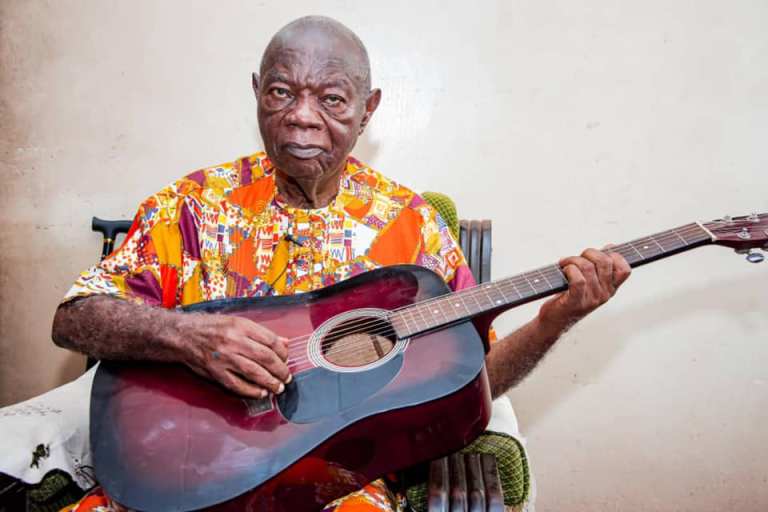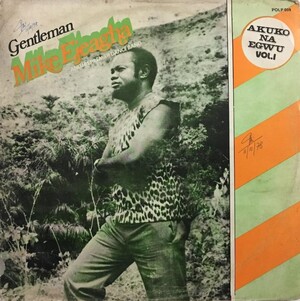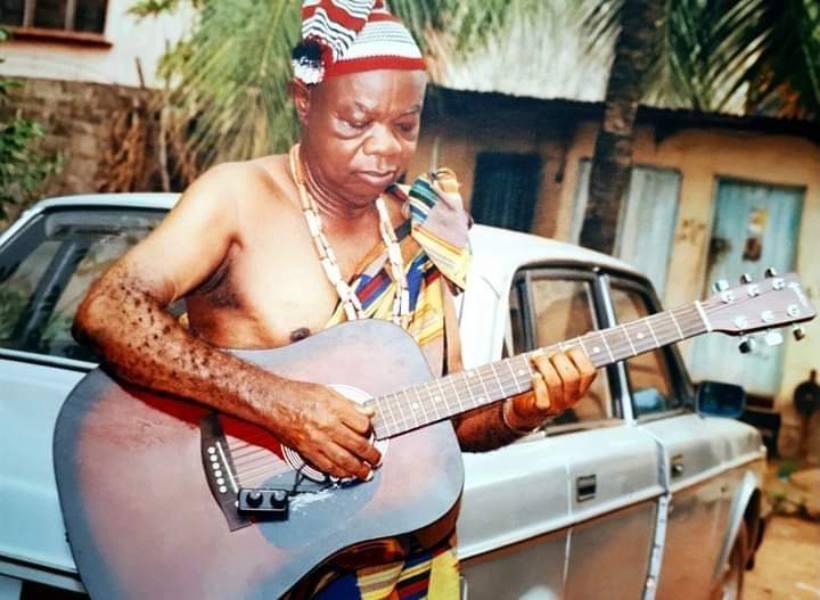
There are songs that entertain, and there are songs that educate but in the dusty streets of Enugu, a man once sang songs that remembered. His name was Gentleman Mike Ejeagha, and through his guitar strings and melodic voice, he became the sage who carried the wisdom of Igbo ancestors to the world. To many, he was just a musician. But to his people, he was onye nkụzi nke ndụ (a teacher of life). “Ilu bụ ụzọ e si eji amụta ndụ.” (Proverbs are the path through which one learns life).
Early Life: A Boy and His Guitar
Born in Enugu in 1932, Mike Ejeagha grew up surrounded by stories. In his village, the elders would gather under the udalatree in the evenings to share tales of courage, greed, and destiny. The young Mike listened keenly, each tale finding its way into his heart. Years later, when he first strummed a guitar, those stories returned, not as spoken words, but as melodies. He would later say, “Music is the story of the people; I only help them hear it again.”
Ejeagha’s style was not flashy. He didn’t chase fame or fast beats. Instead, his songs carried ilu Igbo (Igbo proverbs), wrapped in simple rhythm and slow highlife tunes.
He once remarked, “Every proverb I sing is a piece of truth my ancestors left behind”. “Onye amaghi ebe mmiri bidoro maba ya, agaghị ama ebe ọ kwụsịrị.” (He who does not know where the rain began to beat him will not know where it stopped). Through such words, his songs became mirrors of Igbo philosophy.

The Rise of a Folklore Legend
By the 1960s, when Nigeria was still young and its radio airwaves filled with Western tunes, Ejeagha’s music stood out. He founded the Premier Dance Band, performing at local gatherings, schools, and national events. His breakthrough came with timeless tracks like “Omenuko” and “Eni Ka Nwanne Ya”, which preached morality, communal living, and the need to remember one’s roots.
His lyrics were simple yet profound, stories sung in Igbo, layered with lessons. Each song had a moral, a memory, and a melody. Listeners didn’t just dance; they reflected. “Ebe onye dara, ka chi ya kwaturu ya.” (Where one falls is where his spirit rises again).
This philosophy echoed in his songs about perseverance and human destiny. Through his music, he became the oral historian of a modern age, preserving tales that might have vanished with the old storytellers.
Cultural Preservation through the Folk Archive
In the 1980s, Ejeagha established what became known as the Anointed Folklore Archive in Enugu, a collection of over 1000 recorded folk songs and proverbs. This project, backed by the Federal Radio Corporation of Nigeria (FRCN), turned his life’s work into a national treasure. He recorded not only his music but also the voices of elders from different communities, ensuring that oral history, the lifeblood of the Igbo world, would live beyond them.
“Nku di na mba na eghere mba nri.” (The firewood in one’s land cooks for the whole land.)
Through his archive, the wisdom of one man nourished an entire culture. Ejeagha was not just an artist; he was an institution of memory, a bridge between the past and the present.

Legacy of the Gentleman
Even in his later years, Ejeagha remained calm and reflective, always wearing his gentle smile and signature hat. Younger artists like Phyno, Flavour, and The Cavemen credit him as their inspiration. When asked why he called himself “Gentleman,” he said softly, “Because a storyteller must have patience; words do not rush.”
In 2024, when the world mourned his passing, Nigerians didn’t just lose a musician; they lost a philosopher. His songs like “Ka Esi Le Onye Uwa” and “Uwa Mgbede”, continue to echo in homes, reminding everyone that wisdom is timeless. “Okwu onye okenye bụ ego.” (The word of an elder is as precious as money).
Today, as highlife music blends with Afrobeats and digital rhythms, Mike Ejeagha’s legacy stands as a moral compass; proof that music can both entertain and enlighten. He showed that storytelling isn’t just an art; it’s a duty. Like the griots of Mali and the philosophers of Greece, he sang truth into existence. And in doing so, he ensured that the Igbo proverb, “Egwu bụ ndụ” (Music is life) would never fade.
References
- Igbo Journal Review. (2022, April). Legendary folklorist: Gentleman Mike Ejeagha.
- Vanguard Nigeria. (2025, June). The life and times of Mike Ejeagha.
- Federal Radio Corporation of Nigeria (FRCN). (1992). The Folklore Archives Project: Oral heritage recordings of Mike Ejeagha. Enugu: FRCN Press.



